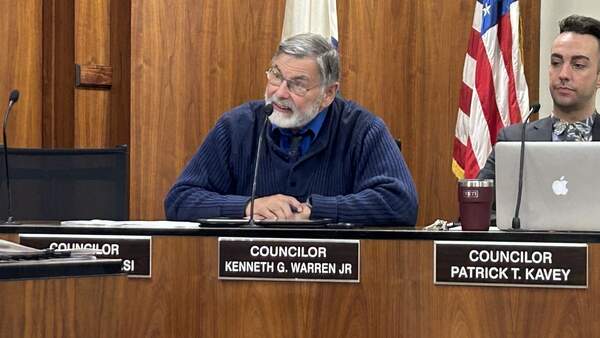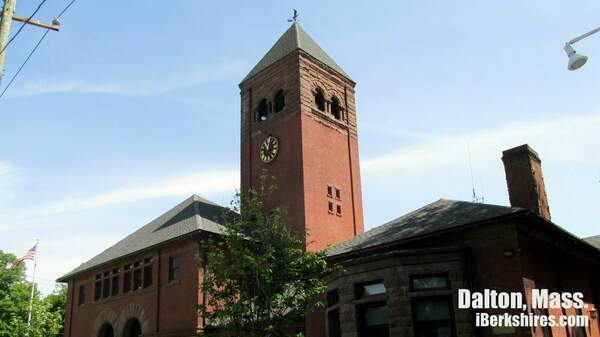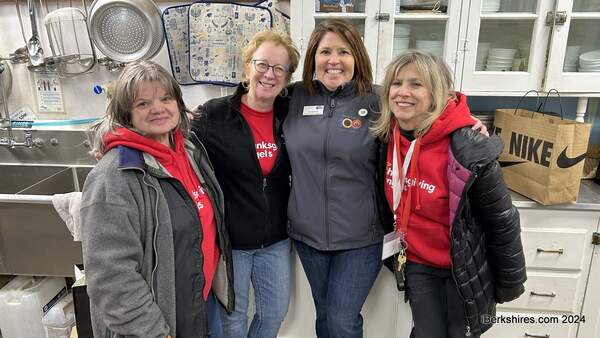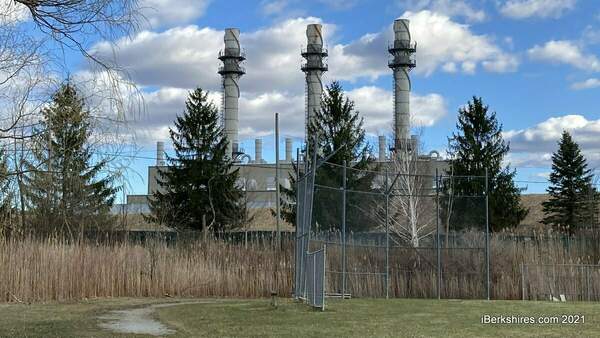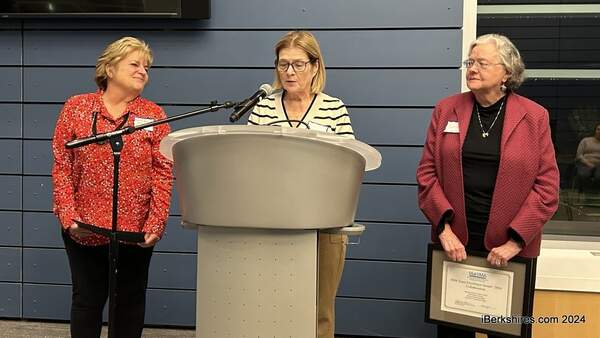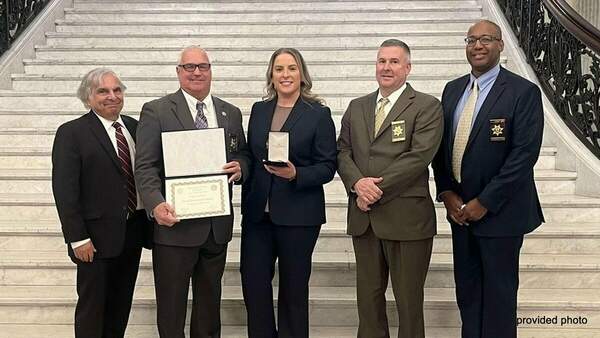

MVP Grant Funds Flood Resiliency in Berkshire County

PITTSFIELD, Mass. — Community partners gathered at the Churchill Brook culvert on Hancock Road on Thursday to highlight flood mitigation efforts assisted by the Municipal Vulnerability Preparedness Program grant.
To date, the state program has awarded more than $5 million to the region and the work has been done over two years.
"The MVP program has awarded $5.7 million to date to our region and we've done that through planning and action grants," Berkshires and Hilltowns coordinator Carrieanne Petrik explained.
"Municipalities are able to apply for planning grants to look at vulnerabilities, identify potential actions they can take to build climate resiliency to those vulnerabilities. Once they're through that process, they can then apply for action grants, which range from $25,000 to $4 million, and to implement the actions that would build greater resiliency and this is one of those projects."
The program began in 2017 and helps municipalities identify key climate-related hazards, vulnerabilities and strengths, develop adaptation actions, and prioritize next steps. This grant project aims to address potential flooding risks in the county and includes Pittsfield, Lenox, Marlborough, and Stockbridge.
The Churchill Brook culvert — previously consisting of two smaller pipes — was overhauled into a box culvert with plenty of space for wildlife and water to pass under. It was completed in 2018.
This and the West Street Culvert Replacement Project received an $814,524 MVP grant.
"The goal of the project was started at merrily examining culverts and bridges for flood resiliency and fish possibility and looking for that win-win of creating road-stream crossings that both allowed fish to get through a covert air bridge as if it's not even there, while also reducing flood risks, especially considering that climate change is giving us heavier flows and a more concentrated timeframe," explained Courteny Morehouse, senior environmental planner at Berkshire Regional Planning Commission.
"But what sort of started at that grew into 'OK, well how can we also incorporate education and job training into this program?'"
This led to a partnership with Greenagers and the Housatonic Valley Association to provide training in flood risk assessment, stream passability, and identifying additional opportunities for nature-based solutions to create resiliency.
Greenagers provides paid employment programs, internships, and apprenticeships to teens and young adults so they can engage in meaningful work in environmental conservation, sustainable farming, and natural resource management.
Three of the Greenagers attended the press conference. Lucas Duval has been working with the organization since April and has surveyed 184 culverts.
"We get to talk to a lot of residents and they're very excited about seeing things like this replaced," Duval said.
"A lot of people have flooding basements, a lot of people we come in and they're like, 'Thank God you're here, we have this laundry list of issues that need to be marked and reported to the city.' So it's been really nice to be able to interact with the communities that need it."
In partnership with Mass Audubon and HVA, education on climate change was also integrated into local classrooms.
"This is really crucial because it kind of shows students what it is that we're doing in the field and has them test that experience in a classroom level," Morehouse said.
"So they did carbon sequestration planning and water resource planning and they use some of the very same tools that we use, and it was adapted for each grade level. It's really unique, really powerful in showing them the futures who are going to inherit the problems of today, how to do that in a more educated and planned way."
They have also branched out into the larger community, consulting with community groups such as the West Side Legends, the Berkshire NAACP, and the Berkshire Environmental Action Team to get feedback on how they are experiencing climate change effects.
"In the coming year, we're going to sort of continue this work, we're wrapping up the road-stream crossing assessments with our wonderful culvert operations Greenagers crew, we then take that data to the town's and the town's, really look at that and go 'OK, what are our highest priorities, and which are the most vulnerable, most stream crossings that have the biggest impact on our community?'" Morehouse explained.
"They choose one, in some cases, they've already know what that one is, and we'll do a survey, HVA as well as Trout Unlimited, who has been crucial in giving technical expertise as well as engineering expertise, will create a conceptual or preliminary design. So all of this is to set them up to that next step of actually getting full designs and then getting a replaced culvert. So it's a lot of work for one culvert to go forward but the idea is that we keep that momentum going so that we really build resilient towns throughout the entire Berkshires."
Lenox Select Board Chair Marybeth Mitts said it was an exciting program to be working on and reported that the town's fifth, seventh, and eighth graders will be incorporating it into their educational plans.
"Many of those students go on and become Greenagers and they go into environmental studies when they leave for college," she added. "So this is a really great moment and it's going to give the town of Lenox the ability to have a complete inventory of all the culverts that need to be assessed within Lenox and then spilling over into other communities within the Berkshires so we're just very excited."
HVA's Watershed Manager Alison Dixon reported that post-construction surveys showed that the replacement of the Hancock Road and Churchill Street culverts increased the size of native brook trout, meaning that the fish can move more freely.
Mass Wildlife identified a healthy native brook trout population in Churchill Brook, which passes under the culverts.
"These projects are critical. Not only do they assist the community with greater climate resilience, but they are so important for the aquatic health of our rivers," Dixon said.
"And that connects to with climate resilience because our aquatic species, especially our native brook trout, that are diminishing and populations need access to get upstream to cooler refuges."
The city hopes to put the Daniels Brook culvert, also on Hancock Road, out to bid soon.
"It's really important that we recognize this wonderful work that multiple institutions, agencies, municipalities, and partners are coming together to work towards more resiliency in our communities, specifically on flood-prone stream crossings," Commissioner of Public Services and Utilities Ricardo Morales said.
Tags: state grant,

